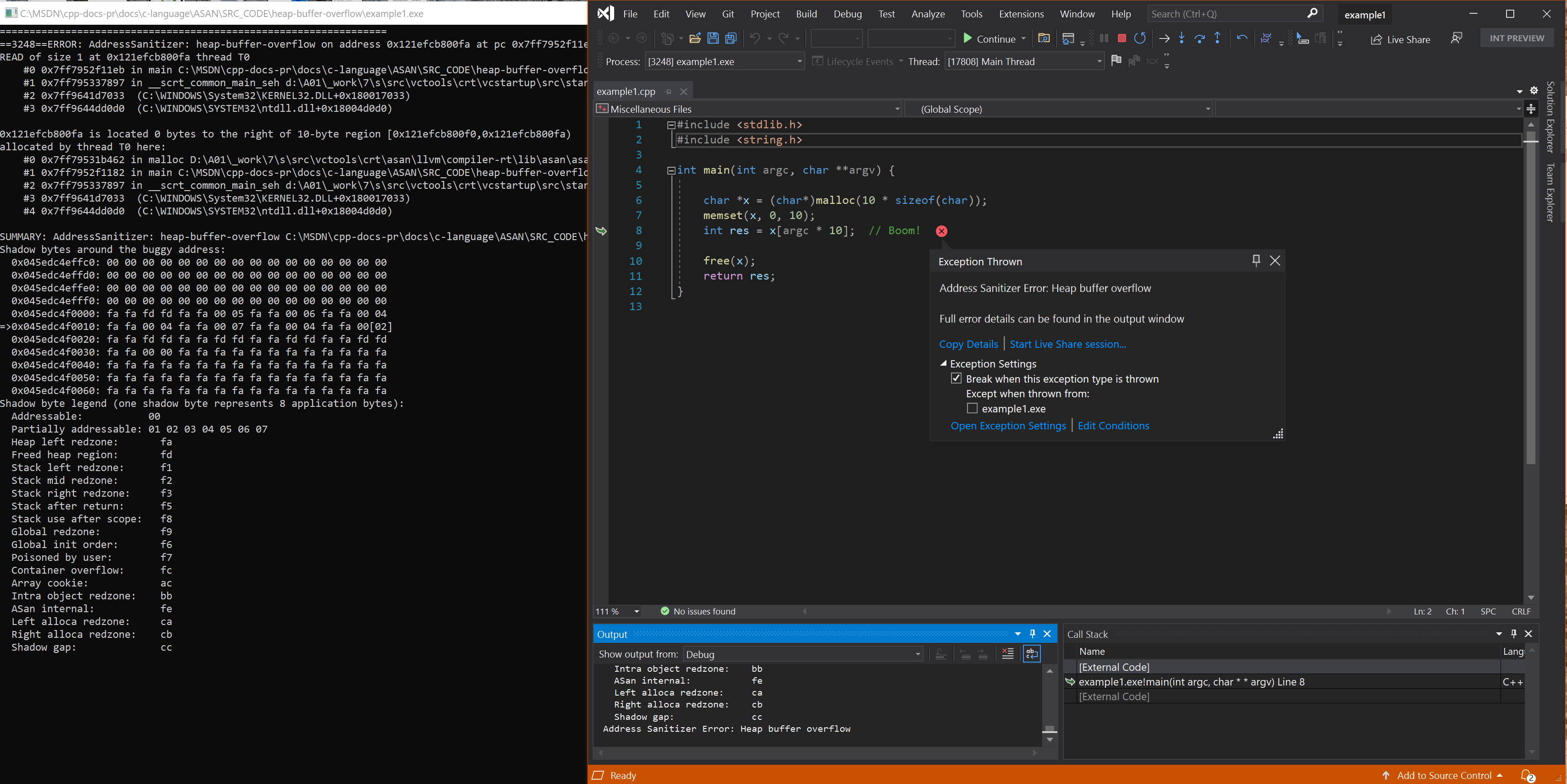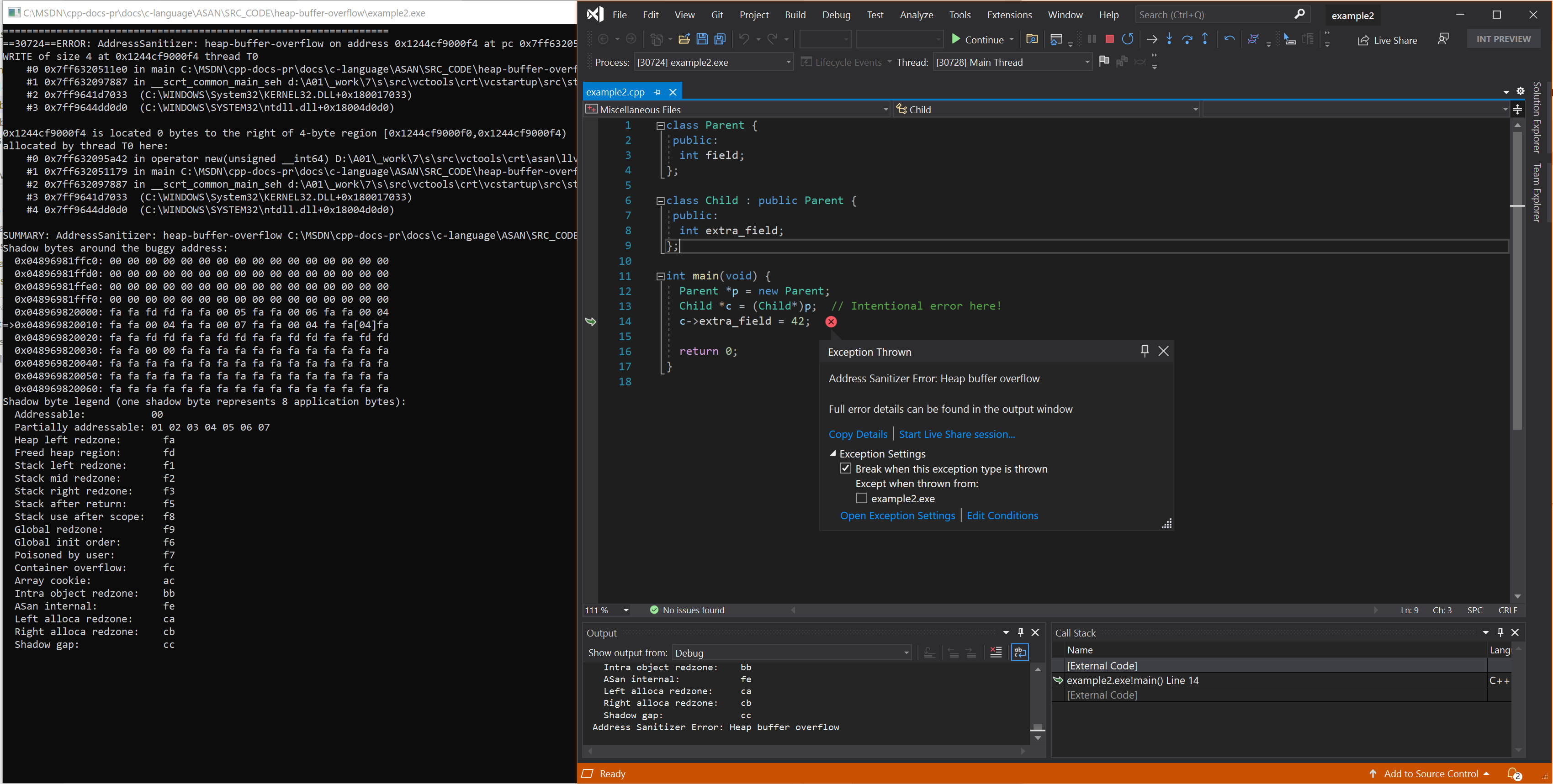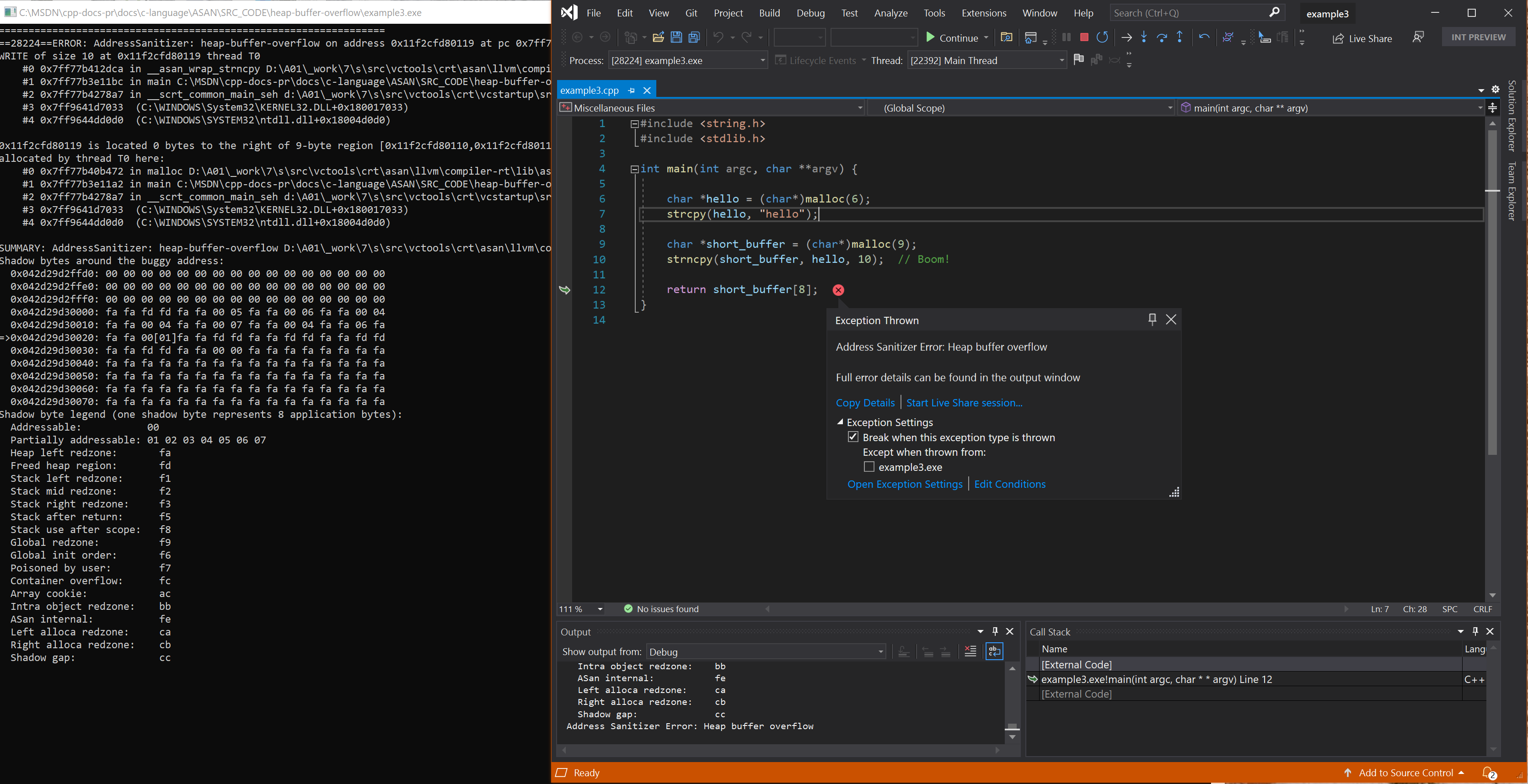Error: heap-buffer-overflow
Address Sanitizer Error: Heap buffer overflow
This example demonstrates the error that results when a memory access occurs outside the bounds of a heap-allocated object.
Example - classic heap buffer overflow
// example1.cpp
// heap-buffer-overflow error
#include <stdlib.h>
#include <string.h>
int main(int argc, char **argv) {
char *x = (char*)malloc(10 * sizeof(char));
memset(x, 0, 10);
int res = x[argc * 10]; // Boom!
free(x);
return res;
}
To build and test this example, run these commands in a Visual Studio 2019 version 16.9 or later developer command prompt:
cl example1.cpp /fsanitize=address /Zi
devenv /debugexe example1.exe
Resulting error

Example - improper down cast
// example2.cpp
// heap-buffer-overflow error
class Parent {
public:
int field;
};
class Child : public Parent {
public:
int extra_field;
};
int main(void) {
Parent *p = new Parent;
Child *c = (Child*)p; // Intentional error here!
c->extra_field = 42;
return 0;
}
To build and test this example, run these commands in a Visual Studio 2019 version 16.9 or later developer command prompt:
cl example2.cpp /fsanitize=address /Zi
devenv /debugexe example2.exe
Resulting error - improper down cast

Example - strncpy into heap
// example3.cpp
// heap-buffer-overflow error
#include <string.h>
#include <stdlib.h>
int main(int argc, char **argv) {
char *hello = (char*)malloc(6);
strcpy(hello, "hello");
char *short_buffer = (char*)malloc(9);
strncpy(short_buffer, hello, 10); // Boom!
return short_buffer[8];
}
To build and test this example, run these commands in a Visual Studio 2019 version 16.9 or later developer command prompt:
cl example3.cpp /fsanitize=address /Zi
devenv /debugexe example3.exe
Resulting error - strncpy into heap

See also
AddressSanitizer overview
AddressSanitizer known issues
AddressSanitizer build and language reference
AddressSanitizer runtime reference
AddressSanitizer shadow bytes
AddressSanitizer cloud or distributed testing
AddressSanitizer debugger integration
AddressSanitizer error examples